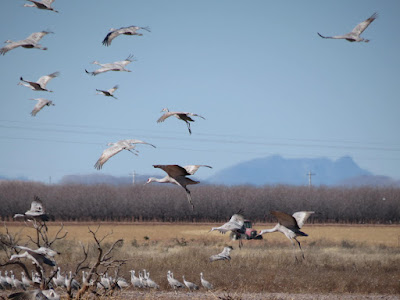 |
| Cold midwinter is the time to call on your sisu! |
A good friend commented recently that citizens of the United States are now becoming “accustomed” to living with daily fear and uncertainty, adding, “Black people have lived this way for centuries.” The same can be said for Native Americans (and indigenous peoples in all parts of the world invaded by Europeans), certain (but not all) immigrant groups, gay people, etc. To survive and thrive under constant threat requires courage, and now is no time now for anyone to be fragile.
Former enslaved people who fled the South in the Great Migration knew fear both in the homes they fled and on the road north, and danger did not stop when travels ended. Whether the ultimate destination was the northern States or Canada, equality of opportunity was not granted upon arrival. Nevertheless, those migrants saw improvements in their lives. Perhaps most importantly, they gained hope. Courage they had all along.
Isabel Wilkerson‘s book The Warmth of Other Suns: The Epic Story of America’s Great Migration tells this story beautifully and is a good book to read, if you haven’t already, during Black History Month.
I am only about halfway through Jonathan Eig’s King: A Life (and less than halfway through Jimmy Carter’s presidential memoir, Keeping Faith), because at bedtime and in the middle of the night I turn usually to fiction. The King biography, however, is quite readable, and when I sit down with it in the late afternoon or early evening, the pages turn quickly. It is not, let me make clear, a hagiography. The author presents MLK’s flaws and self-doubts along with his courage and other virtues. (People often say of some admired person that he or she “was not a saint,” forgetting that those elevated to sainthood by the Catholic Church were all human beings, and none was perfect.) His personal courage inspired others.
King’s fervor lit a flame in many of those who heard him. Jesse Jackson, who was fifteen years old at the time of the 1957 Lincoln Memorial speech and would go on to become a minister, activist, and presidential candidate, said King’s emergence offered concrete hope that racism could be fought and beaten. Before King, there seemed to be two options: “You could go into a deep dark hole,” Jackson said, or “you could adjust—adjust to be the best pool player, adjust to be the best singer, the best barber.” Now King offered a realistic third option, Jackson said: “You could resist.”
A younger friend once asked me, “What were the Sixties really like?” I told her that depended on who you were, how old you were, where you lived, and what was going on your life. The Sixties were not the same for everyone, and neither were the Fifties.
Many historians would describe the 1950s as a time of tranquility, a time of prosperity, a time when the gap between the Left and Right narrowed and Americans, for the most part, agreed that they were fortunate to live in the greatest and most powerful nation on earth. But such descriptions overlooked many who did not feel so fortunate. Once those who were overlooked began to express their discontent, once they began to yearn for more, the picture-perfect image of America in the 1950s showed cracks. Where would the fight for real freedom spread next? It would spread almost everywhere, including Mongtomery.
When Martin Luther King, Jr., gave a sermon or spoke at a rally, people were inspired by his fervor. No demagogue, King was also persuasive in his reasoning and offered a hopeful vision of the future.
Fear is contagious. It resides in the most primitive part of the human brain, always ready to be activated by threat, real or perceived. Survival of the prehistoric group depended on the contagion of fear.
But fear can be overcome, and courage, like fear, can also be contagious.
Courage was contagious in Mongtomery, Alabama, in 1963. It was contagious during World War II in the French village of Le-Chambon-sur-Lignon, where villagers took a united stand. I’m sure everyone reading my words today can come up with examples from personal experience, as well as from history. Real leaders are courageous and inspire others to be brave.
“Courage is like a muscle,” in the words of John McCain. “The more we exercise it, the stronger it gets.” Before he died, McCain worried that America’s cultural courage muscle was growing weak from lack of exercise, and that, he warned,
…means trouble for us all, because courage is the enforcing virtue, the one that makes possible all the other virtues common to exceptional leaders: honesty, integrity, compassion, and humility. In short, leaders who lack courage aren’t leaders.
--Here I want to shift gears, so hold on! Let’s take a look at standup comedy! What? Yes!
Historically, jesters in a royal court, besides telling jokes and performing acrobatic tricks, were permitted to speak their minds freely, even going so far as to criticize the monarch. At times they were trusted advisors to kings and emperors, while at other times speaking truth to power meant they risked their lives. Their courage provided both a safety valve and a warning.
And so it is fitting that in a country whose government is supposedly “of the people, by the people, and for the people,” comedians all over our land provide criticism of nominal leaders (I really do intend that adjective), along with more general entertainment, and my favorite these days is Josh Johnson. This young man is both brave and funny! He makes me laugh!
Laughter—how subversive! We are never thoroughly beaten down if we can still laugh. (Do you think Winston in Orwell’s novel 1984 ever laughed?) When someone tells important truth in a way that provokes spontaneous laughter, our courage can get a big boost.
Where do examples of courage in our world today, in the United States, give you inspiration and hope and make you feel a little braver yourself? I take heart from the examples of U.S. House of Representatives minority leader Hakeem Jeffries, Congresswoman Alexandria Ocasio-Cortez, Illinois governor J.B. Pritzker, California governor Gavin Newsom, and others. Even Senator Mitch McConnell—and I am no fan of his political views in general; quite the contrary—managed to locate his cojones and speak out against January 6 and vote against the abominable Hegseth nomination. The City of Brotherly Love has stood out en masse. Who stands out for you?
As for those of us who are not in Congress, not governors or mayors or ministers with large congregations, we can still spread the contagion of courage among ourselves and to others. Yesterday morning an old song came into my head, something my sisters and I learned as a hymn in Sunday school when we were little girls. Take a listen, and tell me if this doesn’t strengthen your resolve to do whatever you can, day by day.
 |
| Another Sunday school song: "Open up your heart and let the sun shine in!" |












